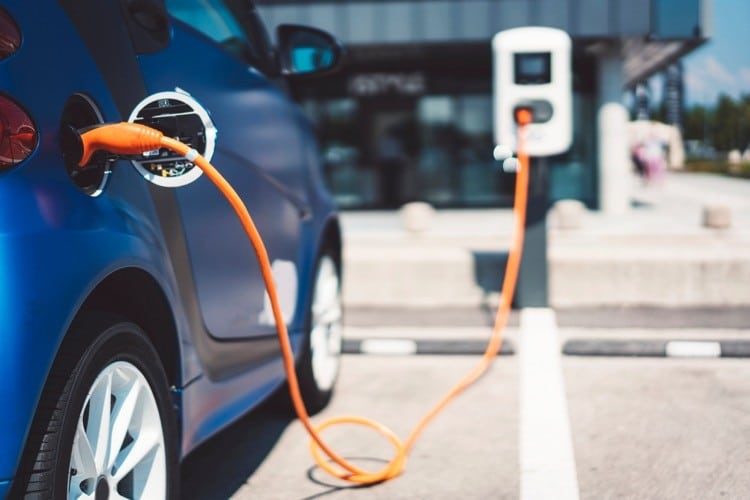
On Thursday, the California Air Resources Board (CARB) moved to completely phase out new gasoline-powered vehicles by the year 2035 in the Golden State. The group of unelected bureaucrats voted to approve the Advanced Clean Cars II plan, which demands that all new vehicles sold in the state must be “100% zero-emission” by 2035.
CARB consists of 14 voting members, 12 of whom have been appointed by climate-alarmist governors Gavin Newsom (D), Jerry Brown (D), and Arnold Schwarzenegger, a Republican. Two other voting members represent what CARB refers to as “environmental justice communities.” The environmental justice members are appointed by California’s far-left Legislature, one by the House and one by the Senate.
Board Chair Liane Randolph, appointed in 2020 by Newsom, hailed the new rules as “ground-breaking.”
“Once again California is leading the nation and the world with a regulation that sets ambitious but achievable targets for ZEV (Zero Emission Vehicle) sales. Rapidly accelerating the number of ZEVs on our roads and highways will deliver substantial emission and pollution reductions to all Californians, especially for those who live near roadways and suffer from persistent air pollution,” Randolph said.
“The regulation includes ground-breaking strategies to bring ZEVs to more communities and is supported by the Governor’s ZEV budget which provides incentives to make ZEVs available to the widest number of economic groups in California, including low- and moderate-income consumers.”
Approximately 16 percent of new cars sold in California during the first quarter of 2022 were electric. By 2026, the plan dictates, one-third of all new vehicles sold in the state will be electric.
California accounts for approximately 10 percent of the U.S. car market, but has close to 43 percent of all electric vehicles.
On August 24, Newsom trumpeted the coming plan that he first announced in 2020.
“The climate crisis is solvable if we focus on the big, bold steps necessary to stem the tide of carbon pollution,” Newsom claimed. The governor said the plan represents “the action we must take if we’re serious about leaving this planet better off for future generations.”
“We will be the first jurisdiction in the world to require all new cars to be sold to be alternative fuel cars,” Newsom boasted to reporters.
The California governor was met with scorn by some.
“Now California is banning non-electric cars,” tweeted Senator Ted Cruz (R-Texas). “Works great if you’re rich; pretty terrible if you’re a waiter or waitress.”
“Ridiculous!” taunted Governor Greg Abbott (R-Texas). “Banning gasoline-powered vehicles will hurt all Americans. No wonder so many people from California have moved to the Lone Star State.”
Even supporters of the move away from gasoline-powered vehicles see some potential problems. The Alliance for Automotive Innovation’s John Bozzella sees challenges ahead for the state.
“California’s EV sale mandates are still very aggressive — even in California with decades of supportive EV policies – and will be extremely challenging. That’s just a fact,” Bozzella said in a statement.
Availability of new EV vehicles might not be strictly in the hands of California bureaucrats.
“Whether or not these requirements are realistic or achievable is directly linked to external factors like inflation, charging and fuel infrastructure, supply chains, labor, critical mineral availability and pricing, and the ongoing semiconductor shortage. These are complex, intertwined and global issues well beyond the control of either CARB or the auto industry,” Bozzella noted.
Some automakers have already weighed in on the coming gasoline-car apocalypse in the Golden State.
Ford’s chief sustainability officer, Bob Holycross, said in a statement that the company is “proud of our partnership with California for stronger vehicle emissions standards.” Holycross called the new rules a “landmark standard that will define clean transportation and set an example for the United States.”
Even Japanese car maker Toyota, who has been slower to embrace zero-emission vehicles than most major car companies, said this week that it shares “the vision of greenhouse gas (GHG) reduction and carbon neutrality goals with the California Air Resources Board (CARB) and the State of California.”
California’s last hope for sanity when it comes to cars may lie in its ballot proposition system, where citizens can vote directly on measures pertaining to the state. Originally, Newsom forwarded this plan as an executive order, which non-elected state bureaucrats essentially codified into law. Citizens can overturn these decisions by themselves if they choose to.
If Californians ever hope to take the state back from the climate hysterics, now is the time.



